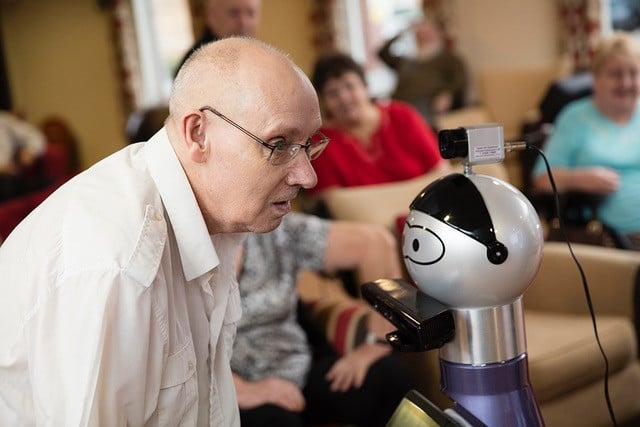Memory-jogging robot to keep people sharp in ‘smart’ retirement homes
A robot that reminds older people where they have put things and helps them exercise has been used by residents in three retirement homes in a trial to combat cognitive decline in later age. Almost a fifth of the European population are over 65 years old, but while quality of life for this age bracket is … Read more






